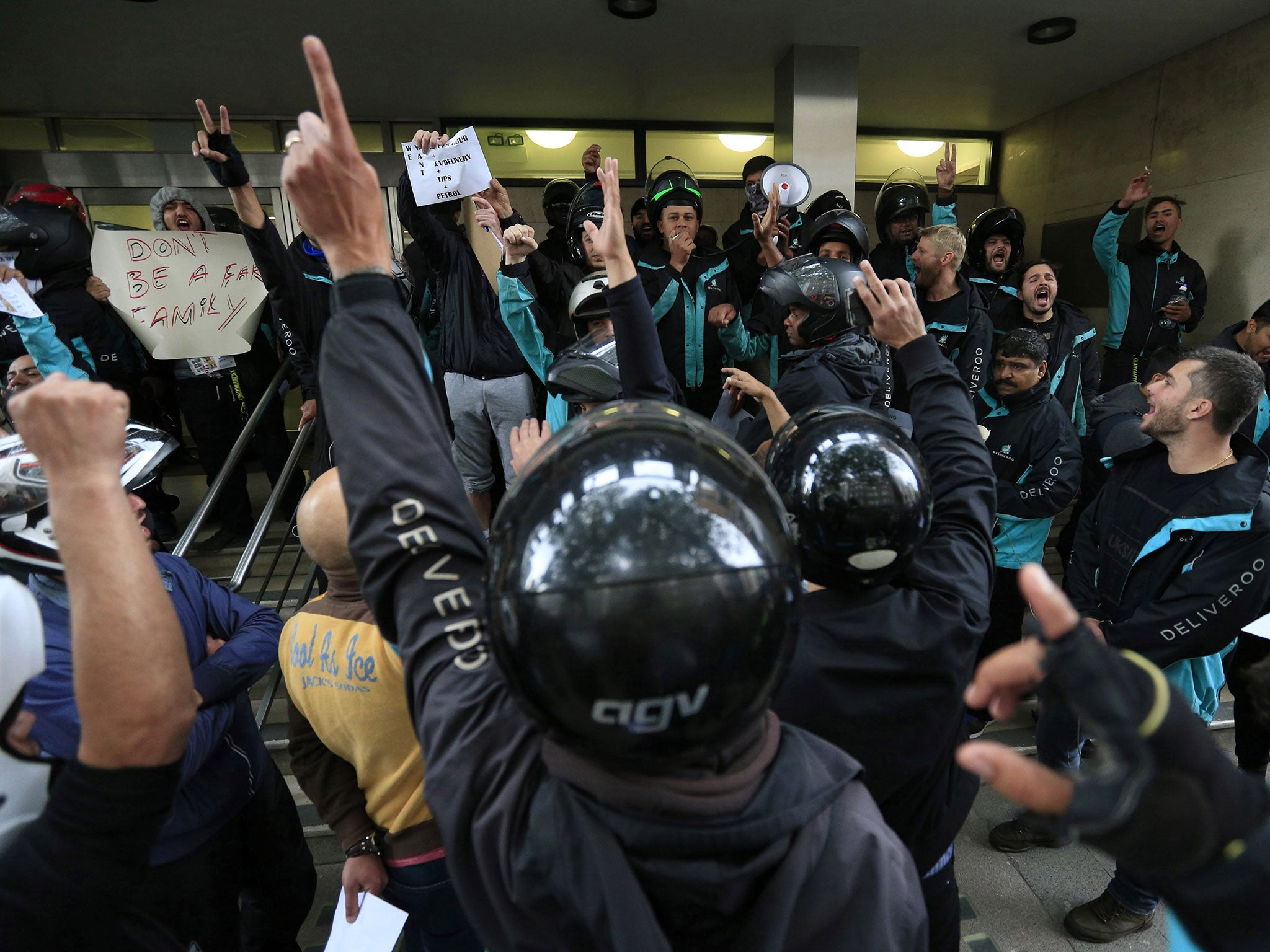Tiny IWGB union finds crowdfunding slingshot in David and Goliath battle with Deliveroo
Riders in Camden want to secure a review of a ruling against them in case that seeks to secure them representation for bargaining over terms and conditions

How on earth can a tiny union with just 11 staff hope to prevail against a multi million pound corporation like Deliveroo?
It’s as if David were left facing a ten foot Goliath covered in kevlar armour and brandishing a pair of machine guns.
Crowd funding might at least provide a slingshot for the Independent Workers Union of Great Britain (IWGB), which represents many of those who have to try and make a living through the country’s oft criticised “gig economy”.
The IWGB has been seeking recognition for Deliveroo riders in Camden so that it can collectively bargain on their behalf. To that end, it took the matter to the Central Arbitration Committee.
The latter’s decision held that the union met the tests for acceptance in every respect with the exception of one: the riders were held to be independent contractors not workers. As such, the case failed.
That view goes to the heart of the fierce debates surrounding the employment practices of gig firms, with critics arguing that they use “independent contractor” status to get around laws on the minimum wage, holiday pay, and other rights accorded to more traditional workers.
With the ruling potentially having implications for others in the same position as the riders, it’s important that the union is able to continue with the case (it's trying to secure a judicial review).
But there is a vast disparity in terms of resources between it and the company. Its 11 employees are mostly part time. Its goal is to have everyone - as the funds become available - on the London Living Wage plus £1, which amounts to £11.20 an hour for organisers, the legal department, the press office, the cleaners. There is still one person on £10.20 an hour: the General Secretary. Much of the work is carried out by members volunteering their time.
Deliveroo? It’s planning a £1.5bn flotation in London or New York that will crystallise a huge fortune for its founder Will Shu. The company is planning to hand out £10m in shares to 2,000 employees of all grades. But guess who misses out? That’s right: the riders on whose success it was built, because they’re not employees.
How can justice be achieved in the fact of such a huge gulf?
While the IWGB lawyers are working pro bono, the union is still faced with taking a significant hit if it loses through costs incurred by the other side, the sort of hit that in an earlier era could have been enough to break it.
The union shouldn’t have risk its future to take cases like this, or be in the position of having to crowd fund. But it is.
Some £13,057 has so far raised via crowdjustice.com, a platform specialising in raising money for legal actions, against a £20,0000 target. That's the slingshot and the omens are good that the case will continue.
But this affair should also spark a debate about the difficulties faced by small unions or workers when it comes to taking on big employers in Theresa May’s “Britain that works for everyone” that clearly doesn’t.
Join our commenting forum
Join thought-provoking conversations, follow other Independent readers and see their replies
Comments
Bookmark popover
Removed from bookmarks